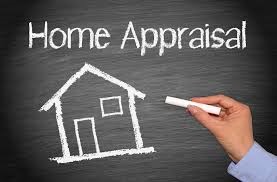Thinking About a Move in 2021? Start Planning Now!
.jpg)
The decision to move is a big one. Chances are a lot of time, thought and energy went into making it. But now that you have decided, it’s time to start thinking about getting ready for the move. You’ve already answered the “should I stay or should I go” question, now it’s time to ask yourself “what should I bring with me and what should I get rid of”? Whether you have kept a lot of things because of sentimental value, or you are just a tad lazy and have let things accumulate over the years, it’s time to decide what to keep and what to let go. Here are some things you should definitely “let go” of before you move:
- Clothes you don’t wear anymore - You know…that dress that you don’t like, but keep just in case you need a dress for something, or that suit that fit a few years ago and might fit again if you can just lose a little weight? Yep. Time to go. Same with any clothes you simply don’t wear anymore, whether because of style or fit. There is no reason to drag them to your next home. If they are in good condition, place them in a donation bag and drop them off. And if they are trash, well…you get the idea.
- Gag gifts and free promotional items - Been to a golf tournament recently? If so, you likely came home with a “swag bag” of sorts. If you consider chip clips, notepads, pens and plastic cups “swag”, then by all means, hang onto it. But if the bag has been sitting on the kitchen counter for weeks, it’s time to say goodbye. Same with any other similar items. Gag gifts are fun to open, but they just end up cluttering your junk drawer. Don’t take junk with you when you move. Trust me…you won’t miss it.
- Kitchen appliances you rarely (if ever) use - Who even uses a “Fry Daddy” anymore? All that grease and fat? Yuck. Just because it was a wedding gift 25 years ago, doesn’t mean you should bring it along with every move. Any appliance that you haven’t used in over a year needs to go. Why take up space in your moving boxes with something you likely won’t use again? Bye, bye!
- Cheap art - Maybe you were on a tight budget when you were decorating your current home, so you bought some inexpensive posters and art for your walls. If you’ve outgrown them, don’t take them with you.
- Most things you have more than one of - I bet you’ve replaced a lap top or cell phone during the years you have lived in your current home. And how many new pairs of eye glasses have you gotten during that time? I also bet that when you replaced those items, you didn’t get rid of the original items you were replacing. Am I right? Well, now is the time my friend. Outdated technology doesn’t have to end up in a landfill, nor does it need to stay with you forever. Take it to be recycled! And you can donate all those old eye glasses to Lion's Club International where they will distribute them to people in need. Electronics: Recycling and Donating
- All the fancy bath products you got as gifts - Seriously. If you haven’t use them yet, you probably never will. If you have a stash of bath bombs and such that you’ve been waiting for the perfect time to use, either use them before you move or get rid of them.
- Stuff you borrowed from friends - As you’re cleaning out cupboards and closets you may come across items you borrowed long ago. Or items friends left at your house after a party of cook-out. GIVE THEM BACK. You might be a little embarrassed if a lot of time has passed, but your friends will appreciate it and it will be one (or two, or three) less things you have to pack and move.
- Anything you forgot you had to begin with - If you come across something that you have genuinely been missing and thought was lost forever, yay! That’s awesome. But if you come across something that you are surprised you ever had to begin with? It goes.
- Stuffed animals - Sigh. Even as a grown-up this one can be tough. They are so cute and cuddly. But depending on how many there are, they can take up a lot of space. Pick a few favorites if you must, and keep your childhood favorite. But if you have a huge collection (whether they are yours or your children’s) I recommend you weed out as many as possible.
The bottom line is, the less you have to pack, the less overwhelmed you will feel about your move. Less truly is more…more time, more energy, more peace of mind.
If you are in the market to buy or sell a home, let Sandra Nickel and her Hat Team of Professionals assist you with all your real estate needs! Call them today at 334-834-1500!
Photo Credit: geauxmovers.com



















